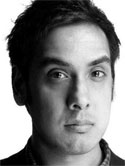
By Ishaan Tharoor
April 22, 2016
Lindsay Lohan, the American actress, is said to be "exploring" Islam. Speculation was first stirred by a photograph of the celebrity carrying a copy of the Quran while completing a stint of community service. This week, in an interview with the Sun, Lohan told the British tabloid that she was indeed reading Islam's holy book.
"I’m a very spiritual person and I’m really open to learning," she said. "America has portrayed holding a Koran in such a different way to what it actually is. We all believe in something and at the end of the day it all ties to a god or a spiritual adviser."
She wasn't converting to a new religion, just learning more. "Lindsay has always been very spiritual and is open to exploring all religions and beliefs. She is simply educating herself on other people’s beliefs," a Lohan representative told Page Six. Some bloggers suggest it's little more than a play for attention; some conservatives, meanwhile, expressed deeper outrage.
Whatever her convictions, Lohan may or may not know that she's walking in a long tradition.
These days, of course, the idea of foreigners turning to Islam evokes grim thoughts. Numerous Western converts joined the ranks of violent extremist groups, from the Taliban to the Islamic State. In the eyes of many politicians and pundits, Islam -- and, by extension, Muslims -- poses a radical and ideological threat.
This was not the case in an earlier era, long before the rise of global jihadist organizations. In the 19th century and into the 20th century, myriad European elites displayed a fascination with the religion, languages, and customs of Muslims they encountered in the fraying domains of the Ottoman Empire and lands further east.
This interest took myriad forms: These included the adoption of the garb of the Zouaves, seen originally on Berber tribesman, by military units in Europe and the United States; in the fixation of European painters and writers with the supposed sensuality and licentiousness of Muslim societies; in the encyclopaedic efforts of Western Orientalists to learn Arabic and other languages of the Middle East and South Asia, and also dig up the region's forgotten ancient cities.
Some people did convert after their travels. Britain's most famous 19th century convert was William Quilliam, the son of a Methodist preacher who returned after a visit to Morocco in 1887 with the new name Abdullah. His embrace of Islam fitted alongside his championing of the Temperance Movement, which advocated abstinence from alcohol.
There were plenty of other figures who also believed the West could gain from adopting the customs of the East.
Last year, WorldViews told the story of David Urquhart, an energetic British supporter of the Ottoman Empire in the first half of the 19th century who saw the Islam of the Ottomans as a moderating influence in a world of Christian enmities. He dressed in Turkish robes and attempted to push other foreign practices on his countrymen, as WorldViews recounted:
Urquhart returned from his travels in Turkey and elsewhere convinced that the Ottoman lifestyle was better for one's health. "If London were [Muslim]," he wrote, "the population would bathe regularly, have a better-dressed dinner for [its] money, and prefer water to wine or brandy, gin or beer." He would later launch a largely unsuccessful movement to bring the culture of Turkish baths to the cold damp of Victorian Britain.
The allure of supposedly Muslim habits was so well-known that even the family of Winston Churchill, that venerable titan of the West, feared he would be seduced by Islam.
"Please don’t become converted to Islam; I have noticed in your disposition a tendency to orientalise, Pasha-like tendencies, I really have," wrote his soon-to-be sister-in-law in a 1907 letter addressed to Churchill. "If you come into contact with Islam your conversion might be effected with greater ease than you might have supposed, call of the blood, don’t you know what I mean, do fight against it."
The likelihood of such a conversion was not particularly great. Churchill, like other British imperial officers posted overseas, encountered Islam as the dominant religion of rival empires such as the Ottomans and the Mughals. Muslims were to be respected -- Churchill was far more contemptuous of India's Hindus, for example -- but they were also to be defeated.
Lohan probably has a different agenda while studying the Koran.
"I’m not done reading it. Do you know how long that would take?" she asked the Sun. "It takes so long."
Source: washingtonpost.com/news/worldviews/wp/2016/04/22/when-being-curious-about-islam-and-muslims-was-the-hip-thing-to-do/

No comments:
Post a Comment